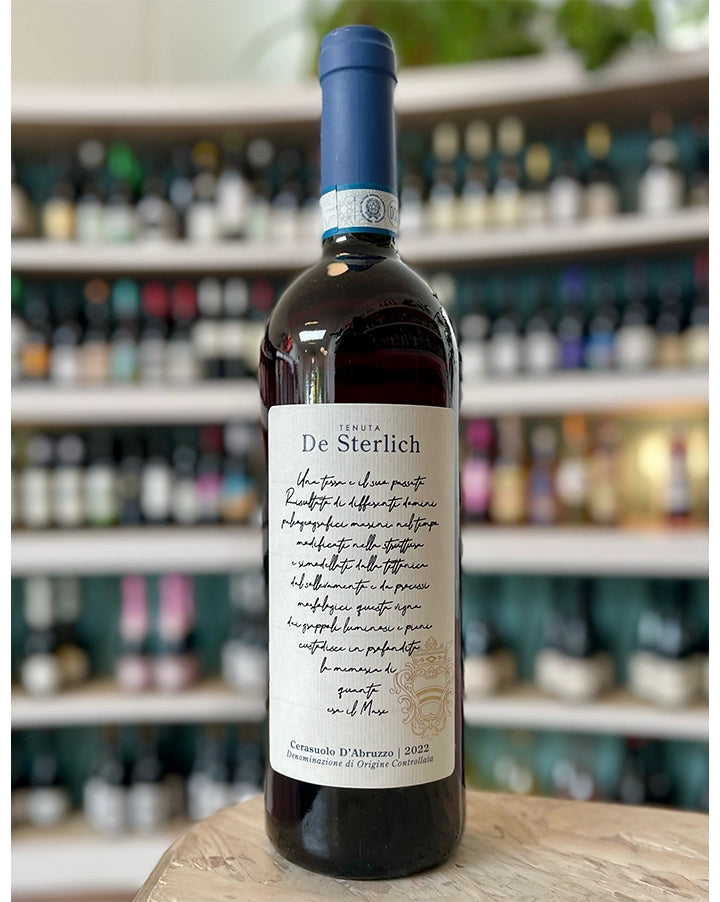Tenuta De Sterlich is a small biodynamic winery nestled between the Adriatic Sea and the Gran Sasso Mountain chain in the Appenine Mountains. The winery makes elegant wines reflecting, as purely as possible, their pristine terroir which has been farmed biodynamically since the winery’s inception.
The winery was founded in 2017 by two friends, Roberto Fracassa and Alessandro Massacesi, from the nearby city of Teramo. Roberto Fracassa is from a family well-known for their cured meats (Salumeria Fracassa). Roberto’s father built the family business from humble beginnings into one of the most respected salumerias of Abruzzo. After ten years of working in the family business, Roberto decided to branch off and, in the same spirit of entrepreneurship, created the winery. Roberto had long been a lover of great natural wines and was lucky in his new endeavor to have Professore Seghetti, the long-time consultant at the renowned Valentini winery and an old family friend. Seghetti continues to consult with them and adds a wealth of invaluable experience to their project.
The two friends purchased a pristine 23-hectare hillside containing 19 hectares of vineyard along with olive trees and forest. Their vineyards are organized into many smaller plots, the largest of which is old-vine Montepulciano, which was planted in the 1960’s. Each small parcel is vinified separately before being blended into the final wine. The youngest vines were planted around 2000, though many date back to the 1960’s. The older vines are planted with traditional Pergola Abruzzese, while many of the younger vines are trained with Guyot. These parcels were long-reputed by locals to be some of the best vineyards in their area.
Their vineyards have been farmed organically and biodynamically from the beginning and they are in conversion to be certified biodynamic. Their focus is on the traditional Abruzzese varieties of Montepulciano, Trebbiano, and Pecorino, though they also have a little bit of Sauvignon and Chardonnay planted. They also make a small amount of Cerasuolo d’Abruzzo, the famous vino rosato of the region. At harvest, everything is carefully picked and sorted by hand. In the cellar, their wines are spontaneously fermented with ambient yeast in cement. Their stainless-steel tanks are only used temporarily for racking and bottling. Aging is done in cement as well, often on the wines’ fine lees. They have also experimented with amphorae, using vessels forged from clay sourced directly from the estate’s land.
For a relatively young winery, De Sterlich is making very pretty, crunchy, and elegant wines. Even the Montepulciano, a grape known for power, has excellent depth but also comes across as lithe and focused. It is exciting to be a part of a new and exciting project inspired by the great references of the region, yet on its unique path forward and destined to become a future classic.

